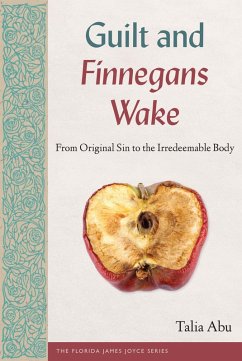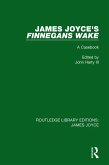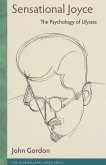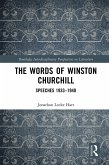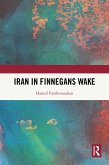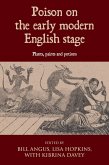Exploring the important themes of guilt and morality in James Joyce's final work
James Joyce's last novel, Finnegans Wake, is notorious for its complex structure and is considered by many to be unreadable. Approaching this complicated book with attention to the theme of guilt, an important concept that has been underexplored in studies of the Wake, Talia Abu presents a clear and thorough interpretation that helps illuminate the book for even the most novice Joyce readers.
In Guilt and Finnegans Wake, Talia Abu examines how Joyce portrays the evolution of cultural beliefs about morality, from the concept of a moral code set in place by a transcendental authority to an embodied morality that originates in material existence. Through close readings of the novel, Abu demonstrates that Joyce engages with guilt as it relates to the Catholic doctrine of original sin, the institution of the marriage contract, the theories of Nietzsche, and the views of Freudincluding Freud's emphasis on physical experience as the primary aspect of being. Ultimately, Abu argues that Joyce sees guilt as a personal and unique experience and that emotions such as guilt can be reclaimed from the influence of religious and social institutions.
Delving into Joyce's representation of historical events while also analyzing Joyce's wordplay and linguistic techniques and drawing from multiple disciplines to understand different conceptions of guilt, this book shows the importance of the theme to the form of Finnegans Wake and Joyce's craft more broadly. Pursuing the questions and ideas that Joyce raises about guilt and morality, Talia Abu makes a case for the enduring relevance of Joyce's work today.
A volume in the Florida James Joyce Series, edited by Sam Slote
James Joyce's last novel, Finnegans Wake, is notorious for its complex structure and is considered by many to be unreadable. Approaching this complicated book with attention to the theme of guilt, an important concept that has been underexplored in studies of the Wake, Talia Abu presents a clear and thorough interpretation that helps illuminate the book for even the most novice Joyce readers.
In Guilt and Finnegans Wake, Talia Abu examines how Joyce portrays the evolution of cultural beliefs about morality, from the concept of a moral code set in place by a transcendental authority to an embodied morality that originates in material existence. Through close readings of the novel, Abu demonstrates that Joyce engages with guilt as it relates to the Catholic doctrine of original sin, the institution of the marriage contract, the theories of Nietzsche, and the views of Freudincluding Freud's emphasis on physical experience as the primary aspect of being. Ultimately, Abu argues that Joyce sees guilt as a personal and unique experience and that emotions such as guilt can be reclaimed from the influence of religious and social institutions.
Delving into Joyce's representation of historical events while also analyzing Joyce's wordplay and linguistic techniques and drawing from multiple disciplines to understand different conceptions of guilt, this book shows the importance of the theme to the form of Finnegans Wake and Joyce's craft more broadly. Pursuing the questions and ideas that Joyce raises about guilt and morality, Talia Abu makes a case for the enduring relevance of Joyce's work today.
A volume in the Florida James Joyce Series, edited by Sam Slote
Dieser Download kann aus rechtlichen Gründen nur mit Rechnungsadresse in A, D ausgeliefert werden.

